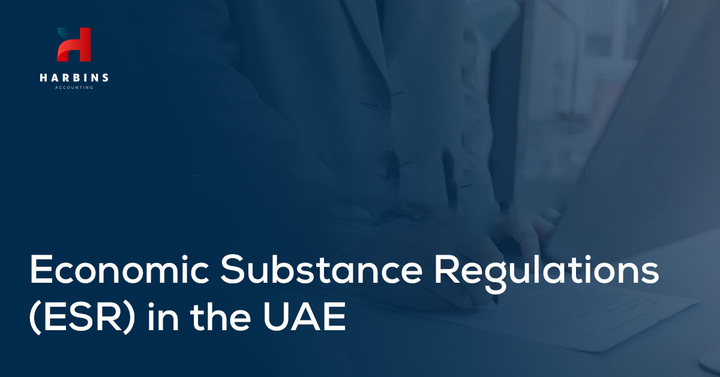In 2019, the UAE implemented the Economic Substance Regulations (ESR) to address concerns raised by the European Commission. The aim was to ensure that UAE entities maintain a genuine economic presence in line with their activities. Recently, the Federal Tax Authority (FTA) has kicked off ESR audits for UAE businesses.
Background of UAE Economic Substance Regulations
The regulations were issued in response to EU Blacklist inclusion and as part of the UAE’s commitment to the OECD Inclusive Framework on BEPS. The goal is to prevent the artificial generation of income or profits not in line with actual economic activity.
Who’s Affected?
All UAE entities and licensees, including branches and rep offices, are covered. The regulations apply to financial years starting from January 1, 2019, with no minimum income threshold for applicability. However, entities at least 51% owned by the UAE government are exempt.
What’s Required?
UAE entities must meet Economic Substance Tests for Core Income Generating Activity, Management, and Physical Presence. Compliance involves filing annual notifications and reports with Regulatory Authorities within specified timelines.
Key Milestones
- April 30, 2019: ESR introduction (Cabinet Resolution No. 31 of 2019)
- September 4, 2019: Determination of Regulatory Authorities (Cabinet Resolution No. 58 of 2019)
- September 11, 2019: UAE MoF issued ESR Guidance (Ministerial Decision No. 215)
- January 5, 2020: FAQs published on UAE MoF website
- April 15, 2020: UAE MoF issued Activities Guide (‘RAG’)
Relevant Activities
The ESR applies to various activities, including banking, insurance, fund management, financing, leasing, headquarters, shipping, holding companies, intellectual property, distribution, and service center businesses.
FTA’s Information Requests
The FTA’s documentation demands for audits include detailed explanations of Relevant Activities, working papers for Relevant Income calculations, board meeting records, and evidence of non-resident directors’ presence in the UAE.
Offences and Penalties
Failure to submit notifications or reports can lead to penalties ranging from AED 20,000 to AED 400,000. Providing inaccurate information is also penalized with a fine of AED 50,000
Deadlines:
- For those companies whose financial year ended 31st December 2022, their reporting deadline is 31st December 2023.
- For companies whose financial year ended 30th June 2023, their ESR notification deadline is 31st Dec 2023.
How We Can Assist
If you’re unsure about the impact of UAE ESR on your business, our experienced team can guide you. We offer analyses of your business activities and ensure compliance with ESR regulations. For concerns about FTA audits, our designated ESR team is ready to assist you.
Understanding and adhering to the Economic Substance Regulations is crucial for businesses in the UAE. Stay informed and proactive to navigate these regulations successfully.
 +971 50 846 8427
+971 50 846 8427 info@harbinsme.com
info@harbinsme.com +971 50 846 8437
+971 50 846 8437 info@harbinsme.com
info@harbinsme.com

